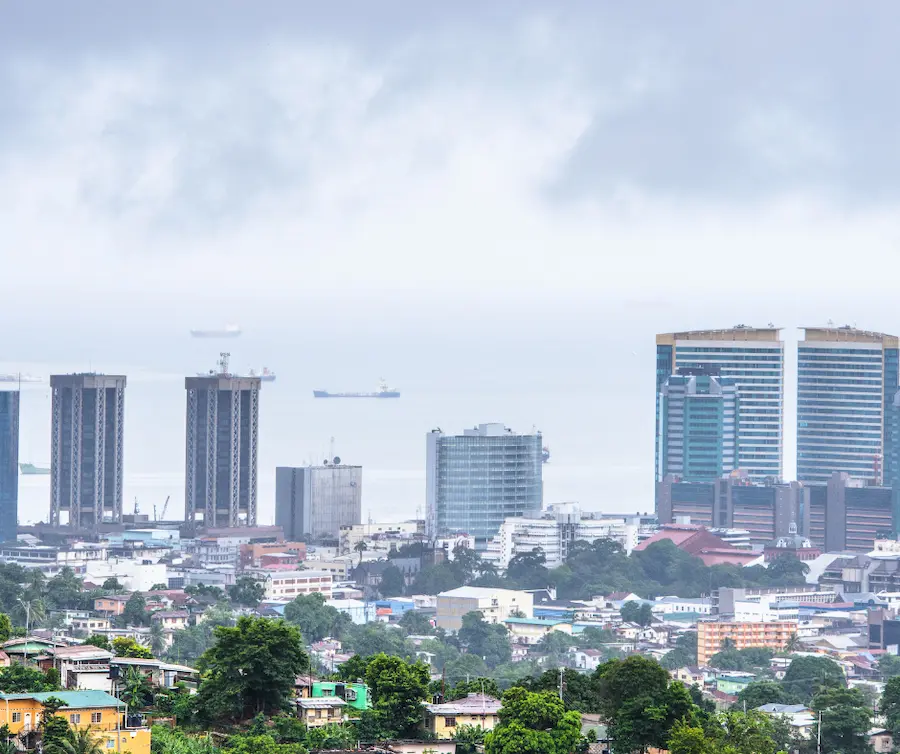

POLITICAL analyst Derek Ramsamooj believes the Tobago West and Tobago East seats will again be a crucial factor in determining the outcome of the April 28 general election.
The seats are currently held by the PNM’s Shamfa Cudjoe-Lewis and Ayanna Webster-Roy, respectively. The women are hoping to retain the seats to serve for a third consecutive term in the Parliament.
The PNM controls 22 of the 41 seats in the House of Representatives.
Ramsamooj told Sunday Newsday, “The two Tobago seats are critical with regards to either stability in the new government, led by Stuart Young, or whether they are going to be influential coalition partners with respect to joining the UNC.”
He continued, “Historically, we have seen the significance of both Tobago seats under the NAR (National Alliance for Reconstruction) government and later on, the relationship with Basdeo Panday’s government and the Kamla Persad-Bissessar-led administration.
“So nationally, Tobago must bear a sense of responsibility with respect to the stability of the government of TT beyond 2025.”
What is uncertain, Ramsamooj said, is whether Tobagonians would vote against the legacy of the PNM, under Dr Rowley, or whether they will recognise the level of fragility in any coalition arrangement.
“Political history has shown that when Tobago joins part of the coalition, that is a short-term approach to the kind of governance they wish to achieve.”
But he believes Tobago is essential to creating stable governance for the country.
Noting there are nine candidates contesting the election in Tobago West and five in Tobago East, he said the challenge would be whether home-grown political parties, such as the Tobago People’s Party (TPP) and the Innovative Democratic Alliance (IDA), would have the capacity to stand on their own to shape the island’s future or whether there must be some form of political coalition between central government and the Tobago-led parties.
“Clearly, there must be a formula of better governance between the island of Tobago and the island of Trinidad when it comes to looking after the interests of the Tobagonians.”
Ramsamooj said people also must recognise that not all Tobagonians live in Tobago.
“There is a fair population in Trinidad as well as in the diaspora. So creating a framework to incorporate Tobago’s thinking nationally and in the diaspora must be a function of going forward.”
Given the number of political entities, he believes vote-splitting could also be a significant feature of the election in Tobago.
Ramsamooj used Tobago East as an example.
“The conversation and consequence of vote-splitting, of whether Tobago East will have a political comparative advantage, is a function of the ground campaign of Watson Duke (Progressive Democratic Patriots political leader).”
Duke, assemblyman for Belle Garden East/Roxborough/Delaford, is contesting that seat.
Ramsamooj believes the ground campaign, in the closing hours of the campaign, would trump all of the political public relations strategies that have taken place on social media and in the traditional campaign space over the past few weeks.
“In the next couple of hours, the ground campaign to get out the vote is going to be critical and whether people are going to be politically principled or whether transactional politics can create the winning vote, what you hope to get for supporting party A or party B.”
He said transactional politics has been the “political plague” of the electorate for about six decades.
But Ramsamooj believes it has risen to higher levels as a result of the utilisation of awareness of tools such as artificial intelligence and social media.
“We are not beyond transactional politics so the benefit is one that starts and ends on election day or the benefit that might take the form of government type contracts. whether it comes from the central government, THA administration or in the hidden form of public-private partnerships. That is our political reality.”
Ramsamooj questioned the effectiveness of the Conversation with the Candidates forum, in giving the electorate a fuller understanding of the mindset of those that have offered to serve.
The event, organised by Tobago Channel Five and Tobago CivilNET, took place on April 16 (Tobago East candidates) and April 23 (Tobago West candidates) in Scarborough.
Although he applauded the initiative, Ramsamooj said, “The insularity of Tobago’s politics has hindered Tobago being on the national political agenda. For a political debate to be effective, the electorate must have sufficient time to internalise and to question what has been put forward.
“So it is a very minute step forward that it appears to be an ad hoc reaction as opposed to something properly structured that would have included greater participation in TT, not merely Tobago.”
On the way forward, post-general election, Ramsamooj believes the long-standing issue of greater autonomy for Tobago must be addressed within the next Parliament with respect to having greater resources from central government and the ability of the island to borrow money regionally and internationally for its own development.
But he argued that the island also must recognise that it cannot be solely a beneficiary of the national economy without contributing a greater share to the central coffers.
“Elements such as tourism and if there are any energy resources outside of Tobago’s waters, an economic framework is required as to how that financial benefit is shared.”
Ramsamooj observed that the autonomy needed for Tobago’s financial economy and Tobago’s public finance borrowing and investment environment were not properly ventilated in the campaign.


